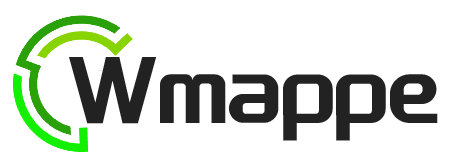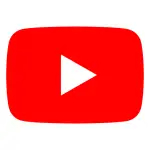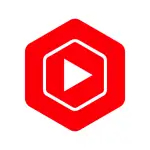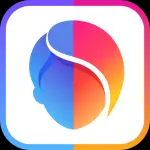- Definition: YouTube is a video-sharing platform where users can upload, view, share, and comment on videos.
- Founders: Created by Steve Chen, Chad Hurley, and Jawed Karim, YouTube was acquired by Google in 2006.
- Global Reach: Accessible in over 100 countries and available in 80 different languages, making it a truly global platform.
- Content Variety: Hosts a wide range of content, including vlogs, tutorials, music videos, documentaries, and more.
Features of YouTube
- User-Generated Content: Anyone can create an account and upload videos, contributing to a vast and diverse library of content.
- Subscription Model: Users can subscribe to channels to receive updates when new content is posted, fostering community engagement.
- Recommendations Algorithm: YouTube's algorithm suggests videos based on user preferences and viewing history, helping users discover new content.
- Live Streaming: Creators can broadcast live events to their audience in real time, enhancing interaction and engagement.
- Comments and Community Interaction: Users can comment on videos, providing feedback and engaging in discussions with creators and other viewers.
- Playlists: Users can create and share playlists of their favorite videos, making it easy to organize and revisit content.
- Monetization Options: Content creators can earn money through ad revenue, channel memberships, and super chats during live streams.
- YouTube Premium: A subscription service that offers ad-free viewing, background play, and access to exclusive content.
- Analytics Tools: Creators have access to analytics that track viewership metrics, helping them understand their audience better.
- Mobile Accessibility: The YouTube app allows users to watch videos, upload content, and engage with the community on-the-go.
Pros and Cons of YouTube
Pros
- Vast Content Library: Offers millions of videos on virtually every topic, catering to a wide range of interests.
- Free Access: Users can watch videos for free, making it an accessible platform for everyone.
- Community Engagement: Encourages interaction between creators and viewers through comments, likes, and shares.
- Learning Resource: A valuable tool for education and self-improvement, with countless tutorials and informative videos available.
- Global Platform: Supports diverse voices and cultures, allowing users from different backgrounds to share their stories.
Cons
- Content Quality Variability: The open nature of the platform means that not all content is accurate or of high quality.
- Ad Overload: Free users often experience numerous ads, which can disrupt the viewing experience.
- Algorithm Limitations: The recommendation algorithm can sometimes promote sensational content over more educational or informative videos.
- Privacy Concerns: Users may be exposed to privacy risks, especially regarding personal data and tracking.
- Monetization Challenges: Content creators may struggle with monetization, as strict policies can affect ad revenue.
Functions of YouTube
- Video Uploading: Users can upload their own videos to share with the world, contributing to the diverse content available.
- Content Discovery: Users can search for videos by keywords, browse trending content, and explore suggested videos.
- Engagement Tools: Viewers can like, dislike, comment, and share videos, facilitating interaction with creators.
- Channel Management: Creators can manage their channels, organize content, and engage with their audience through community posts.
- Content Monetization: Creators can monetize their content through ads, memberships, and merchandise, turning their passion into a potential source of income.
How to Use YouTube
Step 1: Creating an Account
- Visit the YouTube Website: Go to www.youtube.com or download the YouTube app on your mobile device.
- Sign In: Click on "Sign in" at the top right corner and use your Google account to log in or create a new account.
Step 2: Navigating the Interface
- Home Page: The home page displays recommended videos, trending content, and subscriptions. Take time to explore these sections.
- Search Bar: Use the search bar at the top to find specific videos or channels by entering keywords.
Step 3: Watching Videos
- Click to Play: Click on any video thumbnail to start watching. The video will play in a larger window, with options to like, share, or comment below.
- Adjust Settings: Use the gear icon to adjust video quality, enable subtitles, or change playback speed as needed.
Step 4: Subscribing to Channels
- Find Creators You Like: When you find a creator whose content you enjoy, click the "Subscribe" button on their channel page.
- Turn on Notifications: Enable notifications to receive updates whenever new content is posted.
Step 5: Engaging with Content
- Leave Comments: Share your thoughts or ask questions in the comments section to interact with creators and other viewers.
- Like or Dislike: Show your appreciation by liking videos or providing constructive feedback with a dislike.
Step 6: Creating and Uploading Your Own Content
- Set Up Your Channel: Click on your profile icon and select "Your Channel" to create and customize your channel.
- Upload Videos: Use the camera icon to upload videos from your device. Follow the prompts to add titles, descriptions, and tags.
- Edit and Publish: Use YouTube's editing tools to enhance your video before publishing it for viewers.
Step 7: Utilizing Playlists
- Create Playlists: Organize your favorite videos by creating playlists. Click on "Library," then "Playlists," and select "New Playlist."
- Add Videos: While watching a video, click on the "Save" button to add it to an existing playlist or create a new one.
Step 8: Exploring YouTube Premium
- Consider Subscription: If you prefer an ad-free experience and additional features, consider subscribing to YouTube Premium.
- Access Exclusive Content: Enjoy exclusive series and films created by YouTube Originals, available only to Premium members.





 0
0 



